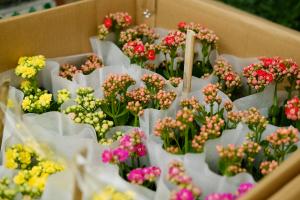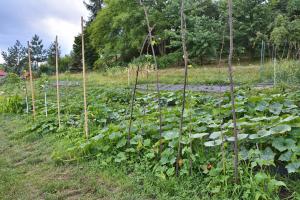How to Plant Christmas Tree Farm
Introduction
Christmas is the season for giving and sharing, and what better way to indulge in the festive spirit than by planting a Christmas tree? Not only does this add to the cheer of the season, but it also helps the environment. If you have a large area of land available, you might even consider setting up a Christmas tree farm.
Choosing a Tree Type
Before setting up a Christmas tree farm, the first step is to choose which type of tree to grow. Some popular options include Douglas fir, Fraser fir, Noble fir, and Balsam fir. For most tree species, it takes around 7-10 years for the tree to grow to a height of 6-7 feet, which is the ideal height for a Christmas tree.
Preparation of the Land
The success of your Christmas tree farm depends largely on the preparation of the land. Soil samples should be taken to determine the nutrient levels and pH balance. The land should be free of weeds, pests, and other obstructions. Remove any large stones or branches and till the land to loosen the soil.
Planting the Trees
Once the land preparation is done, it’s time to plant the trees. Christmas tree seedlings can be obtained from local nurseries or wholesale suppliers, depending on the quantity required. The seedlings should be planted at a depth of at least six inches, with the root collar level with the surface of the soil. Make sure to leave enough space between the seedlings to allow for growth.
Caring for the Trees
After planting, the trees should be watered regularly for the first couple of years to help them establish a strong root system. The amount of water required will depend on the soil type and weather conditions, but generally, aim for one inch of water per week. Pruning of the trees is also necessary to promote fullness and shape. This should be done in the early spring before the tree starts to grow. Finally, consider using fertilizers to provide additional nutrients to the trees.
Harvesting the Trees
Once the Christmas tree has reached the desired height, it’s time to harvest it. This can be done using a saw or other suitable cutting tool. If you are selling the trees, it’s best to harvest them during the week leading up to Christmas to ensure maximum freshness. Remember to leave some trees to grow for the following years.
Conclusion
Setting up a Christmas tree farm requires sufficient land, resources, and patience. However, the end results are rewarding both financially and environmentally. With proper planning and care, a Christmas tree farm can be a sustainable and profitable venture for years to come.

 how many times do yo...
how many times do yo... how many planted tre...
how many planted tre... how many pine trees ...
how many pine trees ... how many pecan trees...
how many pecan trees... how many plants comp...
how many plants comp... how many plants can ...
how many plants can ... how many plants and ...
how many plants and ... how many pepper plan...
how many pepper plan...




























